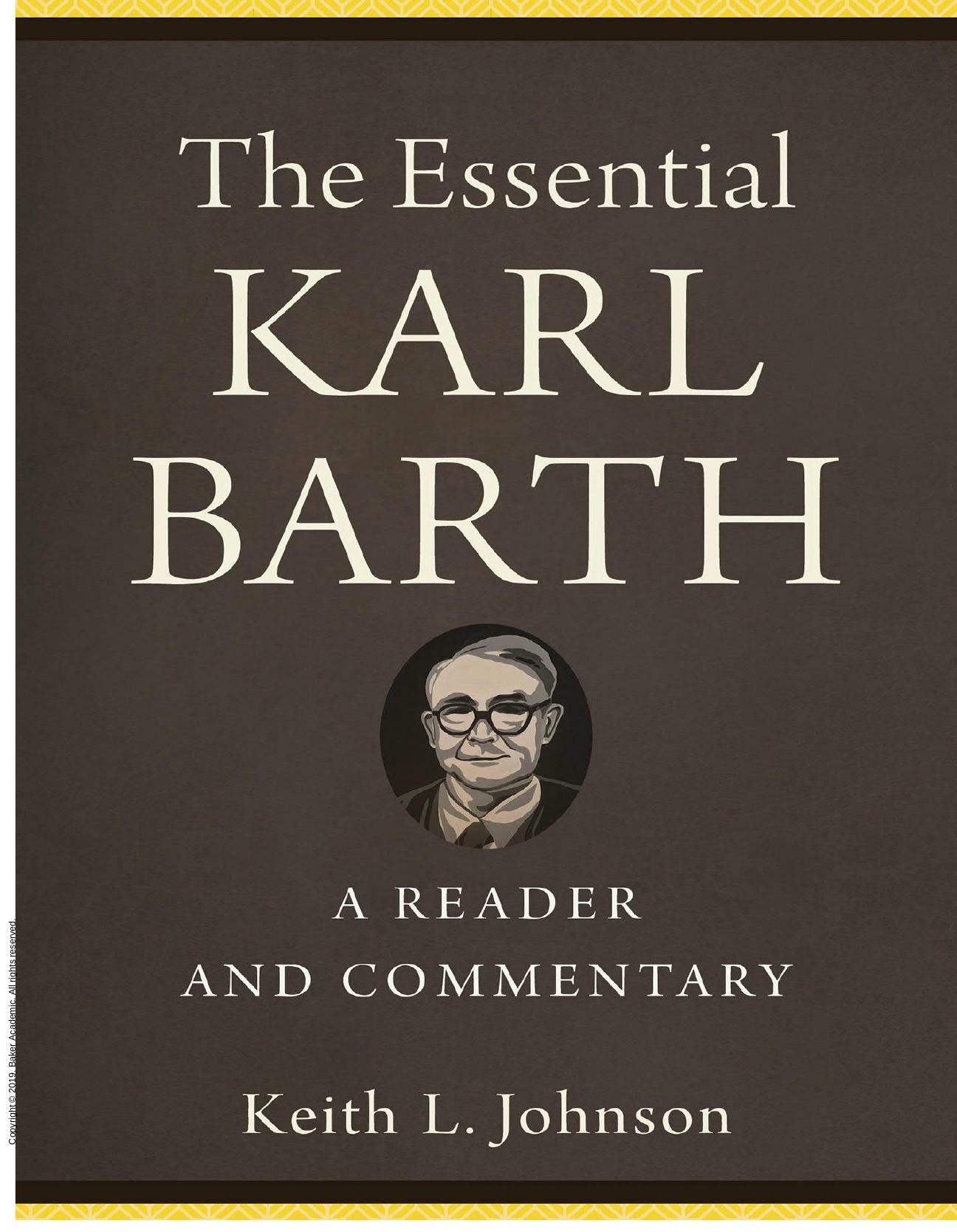The Essential Karl Barth: A Reader and Commentary by Keith L. Johnson

Author:Keith L. Johnson
Format: epub, pdf
1. Karl Barth, Church Dogmatics II/2 (Edinburgh: T&T Clark, 1957), 4â11, 13â14, 25â27, 53â54.
2. See Barthâs discussion of these topics in chaps. 16 and 17.
3. Barthâs central claim in these opening paragraphs is that we know God rightly only when our account of God includes his relationship with humans in Jesus Christ. This claim is grounded on an assertion Barth has spent his entire career defending: theology begins and ends with Godâs revelation in Christ. Barth now insists that, if this claim is true, then we have to pay attention to the full measure of what the history of Christâs life reveals. Christ shows us that God has decided to live his own divine life together with humans. A dogmatics that fails to account for this divine decision and this relationship remains abstract and false because it strays from its true object of knowledge (see chap. 10).
4. After affirming that dogmatics must account for Godâs relationship with humanity in Jesus Christ, Barth immediately adds a qualification: this relationship is not necessary to God. God is free, and so no internal or external necessity binds God to this relationship. But Barth insists that we cannot stop there. Christ shows us that, even though God does not have to relate to us, God has freely decided to do so. A correct description of God will include the reality of this divine decision and its implications. These claims reflect Barthâs earlier discussion about the freedom and love of God (see chap. 17).
5. Barthâs argument about the âobligationâ that God lays on himself stems from his account of the reality of Godâs perfect being and knowledge. God always acts in a manner consistent with his own divine being, and his actions always reflect his perfect knowledge of himself and all things. So Godâs decision to enter into a relationship with humanity in Jesus Christ is not haphazard, as if takes place accidentally, spontaneously, or randomly. Rather, this decision reflects Godâs perfect wisdom and is a faithful expression of his divine being and character. This is why, even though this decision is absolutely free, it also is definitive. If God were to revoke this decision, his wisdom and consistency of character could be called into question.
6. This argument echoes Barthâs earlier claims about the nature of dogmatics (see chaps. 11â12). Christians know God because God is a living subject who makes himself an object of human knowledge in the event of his self-revelation. If God is the subject who determines the human knowledge of God through this actionâand if God reveals that he has decided to place himself in a permanent relationship with the man Jesus Christ and the people he representsâthen dogmatics has no choice but to account for the content of this revelation in its description of God. A theologian who refuses to listen to Godâs revelation on this point effectively avoids Christ, seizes control of the knowledge of God from God, and becomes the subject who establishes this knowledge. For Barth, the inevitable results of such a move are abstraction and idolatry.
Download
The Essential Karl Barth: A Reader and Commentary by Keith L. Johnson.pdf
This site does not store any files on its server. We only index and link to content provided by other sites. Please contact the content providers to delete copyright contents if any and email us, we'll remove relevant links or contents immediately.
Fangirl by Rainbow Rowell(9227)
How to Bang a Billionaire by Alexis Hall(8144)
Wonder by R. J. Palacio(8097)
The Space Between by Michelle L. Teichman(6927)
The Thirst by Nesbo Jo(6924)
Assassin’s Fate by Robin Hobb(6197)
Wiseguy by Nicholas Pileggi(5766)
The Night Circus by Erin Morgenstern(5215)
Paper Towns by Green John(5175)
The Kite Runner by Khaled Hosseini(5162)
Bittersweet (True North #1) by Sarina Bowen(4842)
Gerald's Game by Stephen King(4639)
Too Much and Not the Mood by Durga Chew-Bose(4333)
Pillow Thoughts by Courtney Peppernell(4271)
Goodbye Paradise(3797)
Twelve Days of Christmas by Debbie Macomber(3559)
Good by S. Walden(3544)
The Rosie Effect by Graeme Simsion(3459)
The Cellar by Natasha Preston(3332)
